It’s great to be able to go on some winter motorhome adventures and take advantage of quieter campsites as well as get the most out of your pride and joy.
But winter weather will affect the way your motorhome performs on the road and it’s important to be more prepared than ever in the colder months.
Winter motorhome checks
Bad weather can strike at any time, but even more so in the winter, so it pays to carry out some simple checks before wintry weather, such as hail, sleet, snow, ice, fog, strong winds, and winter sun strikes.
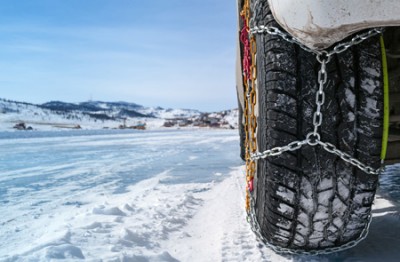
It’s good to get an annual motorhome service at this time of year so you can resolve any issues quickly but before setting off on your winter motorhome adventures.
- Check all lights are clean and working
- Check your motorhome battery is fully charged and working efficiently
- Check oil and anti-freeze levels
- Check your tyre pressure, age, tread and condition. You might want to also consider winter motorhome tyres.
- Clean your windscreen, windows, and mirrors
- Make sure your windscreen wash is topped and your wiper blades are clean
Winter motorhome kit
Being prepared is key, so put together a winter motorhome kitbag to include:
- De-icer and ice scraper
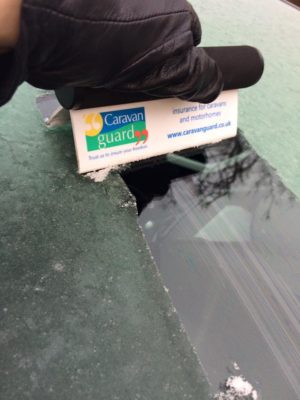
- Hazard warning triangle
- A shovel and hand brush
- Torch
- First aid kit
- Wellies or snow boots
- High vis jacket
- Grip mats or carpet squares
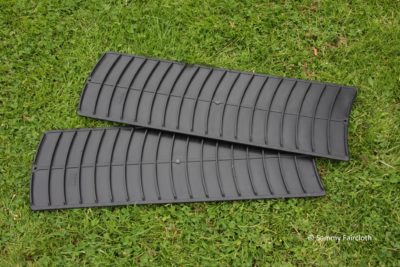
- Tow rope
- Blanket/s or sleeping bag

- Phone charger so your mobile can be kept fully charged
- Food supplies, such as chocolate, sweets and energy bars and water.
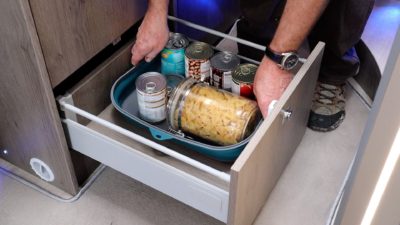
Winter motorhome planning
It’s worth signing up for Met Office alerts before you travel in the UK. They send out yellow, amber or red weather alerts, which might mean changing your winter motorhome plans. Also, check for local traffic updates to make sure you’re aware of any road closures or roadworks, so you’re not caught out along the way.
Make sure you have enough fuel and a valid MOT.
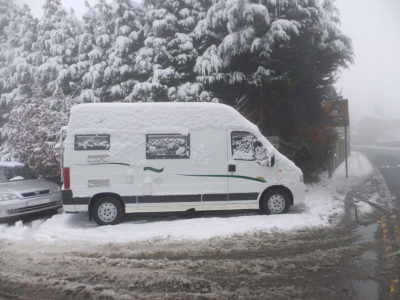
Always make sure you’ve removed any snow from your motorhome roof and that all windows are de-iced. Not only is it important to be able to see out of your windows clearly, but you could be penalised if you do not have a full view of the road and traffic ahead.
Driving your motorhome in winter
Take the slow road! Winter weather will bring wind, rain, snow or icy conditions, so take it steady and drive a bit slower than normal so you’ve got time to react to the conditions.
We’re used to lots of rain in the UK in winter, but it’s important when driving in heavy rain to go slower and leave a bigger gap between you and the vehicle in front to make visibility easier and to account for longer braking distances – stopping distances will be at least double those of driving on a dry surface according to the Highway Code.
Don’t be tempted to drive through floodwater as you never know how deep the water actually is. And to reduce the risk of aquaplaning, reduce your speed when roads a very wet and stay away from the kerb. Test your brakes once you’ve driven through surface water.
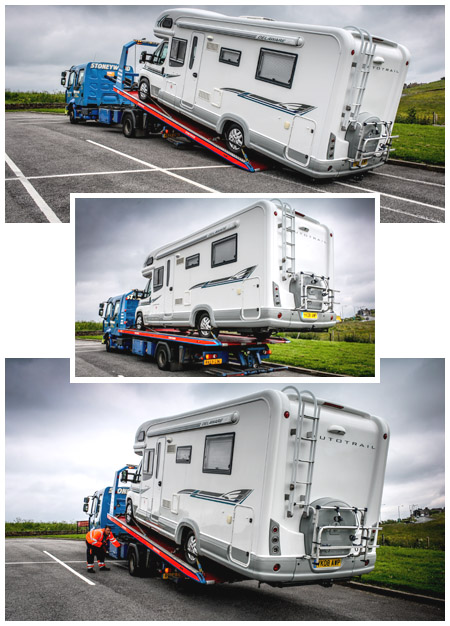
Finally, check your motorhome insurance is up-to-date and that you have breakdown cover. Don’t forget our award-winning motorhome insurance policy has UK breakdown and stuck in mud cover as standard, so you can call for help should you need it.


Some great ideas.Thanks
Ron. Merry Xmas.⛄️
Thanks Ron and Merry Xmas to you too.
The only thing I think you missed is to run your vehicle air con every now and then to dehumidify the interior. Keeping the coolant circulating also helps reduce the risk of seals drying out and leaking.
Thanks Jon – good tip
Extra bedding, plenty of warm clothes, check your gas supplies and carry a spare if you have space. We find a bag of rock salt useful…
Thanks Ian. Great extra information
Great mag guys keep it up 5 star from me
Thanks for your great feedback Keith – we really appreciate it.